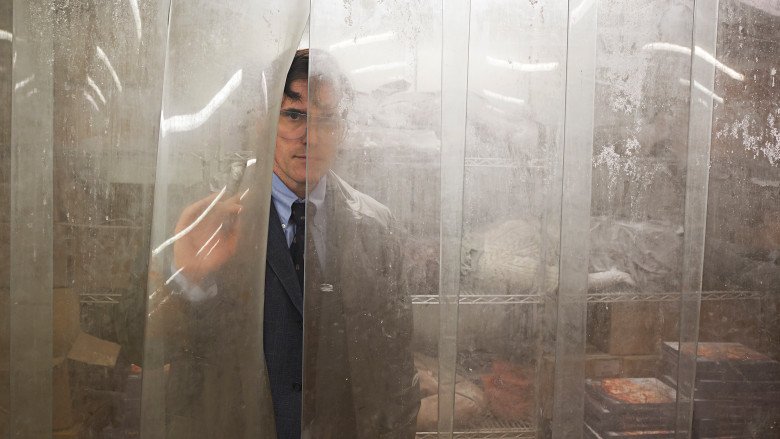
One of the easiest criticisms to make of a film is that it’s overrated. Similarly, saying a film is underrated is one of the easiest, most generic platitudes one can bestow on a movie. In a time where there’s so much competing buzz, when filmmakers and critics constantly struggle to standout, when audiences are inundated with constant claims of what they must see, when almost every piece of narrative storytelling is either underrated or overrated in some way, what does it mean for a movie to be truly underrated?
This list has sorted that out. This is a list of the most underrated movies of 2018. It is of course subjective, and it comes with qualifications. All the films here received paltry attention. They differ in terms of budget, star power, ambition, and indie cred, but in every case, audiences stayed away. This list sought to capture films that met certain standards of quality, obscurity, and low box office turnout. One could make the case that most foreign films and documentaries are underrated just because of low interest (especially in the US) in those genres.
Movies that made their way into awards season conversations— The Wife and The Hate U Give, for example—were omitted. Films that received rapturous critical reception but little else (You Were Never Really Here and Zama to name just two) were also left off. Ditto for quality big-budget bombs like Widows and Overlord. Also, films that generated some heat on the festival circuit were considered as rated more than others, so films like Damsel, Blindspotting, and Wildlife didn’t make it as they received substantial attention throughout their cinematic seasons.
What’s left on this list are some of the most unsung gems in a sea of unsung gems. These films are of course imperfect, some more so than others, and quite obscure. But what sets them apart, aside from their depth and quality, is the degree to which they went unnoticed. Not every film has an audience, and many, if not most, films never find theirs. The films on this list deserve to, and that’s why they’re here.
10. The Party
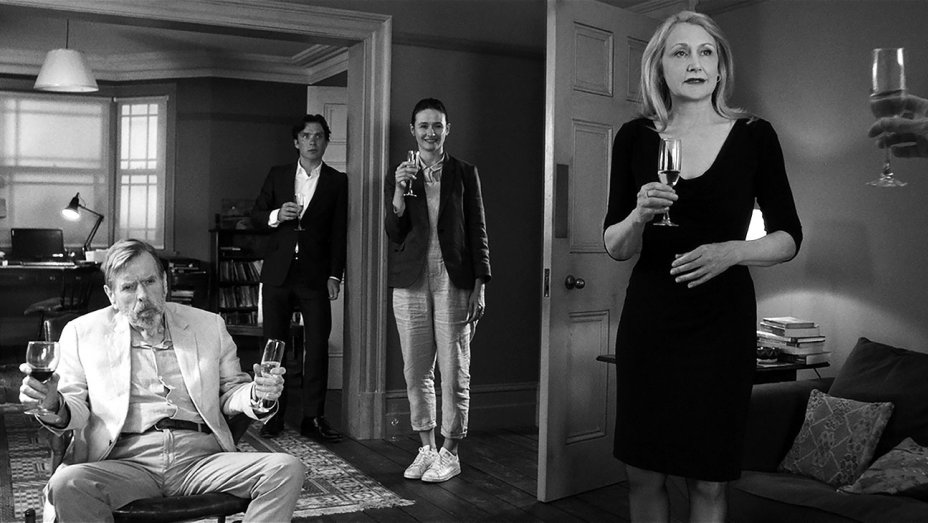
The dinner party film is a wee genre that mostly functions on one rule: the party in the film is generally not one audiences would want to attend in real life. Also, Chekov’s gun is usually in attendance. The Party is blissfully aware of these rules and has ample fun with them. This is one of the rare cinematic dinner parties that would be as fun to attend as it would be horrifying.
Sally Potter’s first film in five years, The Party depicts a shindig so miserable that infidelity, drug use, and weapons are actually bright spots in the plot. The film is shot in black and white to match the stark, dark humor of the proceedings, and Potter matches the pace to the crispness of the images. In a time when the industry claims to be clamouring for more female filmmakers, it would be lovely if Potter could work more often.
The Party also features a who’s who of European cinema: Patricia Clarkson, Bruno Ganz, Cherry Jones, Emily Mortimer, Cillian Murphy, Kristin Scott Thomas, and Timothy Spall. Each actor has a ball with their part, imbuing enough humor and life into leftist stereotypes to send the entirety of the Trump administration into epileptic fits. But perhaps the strangest thing about The Party is how pleasant and jaunty it is. It ends on an ambiguous (but furious) note, yet it somehow manages to come off as an ideal dinner party: satisfying but not heavy, wry but joyful, and enjoyable throughout.
9. Disobedience
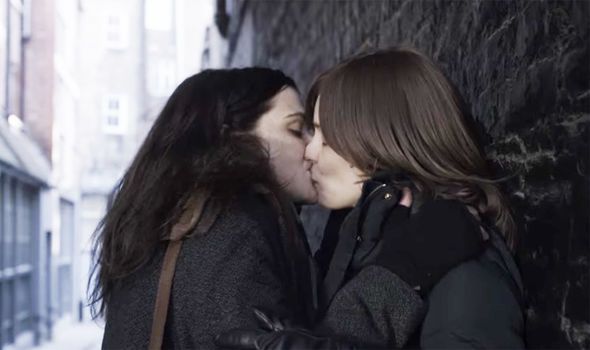
Sometimes it takes an outsider to really explore a community, and Sebastián Lelio takes that approach to London’s Orthodox Jewish community in Disobedience. Lelio had a big year, winning the best foreign film Oscar for A Fantastic Woman and making an English language remake of his 2013 film Gloria.
Between these efforts, he and co-writer Rebecca Lenkiewicz, working from Naomi Alderman’s novel, crafted a hauntingly defiant exploration of how tradition and dogma collide with modern values. The film is anchored by its three strong leads. Rachel Weisz portrays Ronit, a woman who left her community and returns upon her father’s death. She finds her old friends Dovid and Esti, played by Alessandro Nivola and Rachel McAdams, married but both in turmoil. Dovid is anxious about assuming a higher spiritual role in the community, while Esti has yet to leave behind her past with Ronit.
It would’ve been easy to sell Disobedience as a titillating story of forbidden love, something that could’ve been written by a latter-day Eszterhas. Instead it is a universal story that looks at elements of religion and LGBTQ-rights that are often overlooked and does so without demonizing or proselytizing. It’s the rare gentle look at divisive material that provides its characters with empathy and emotional conflict.
8. Where Is Kyra?
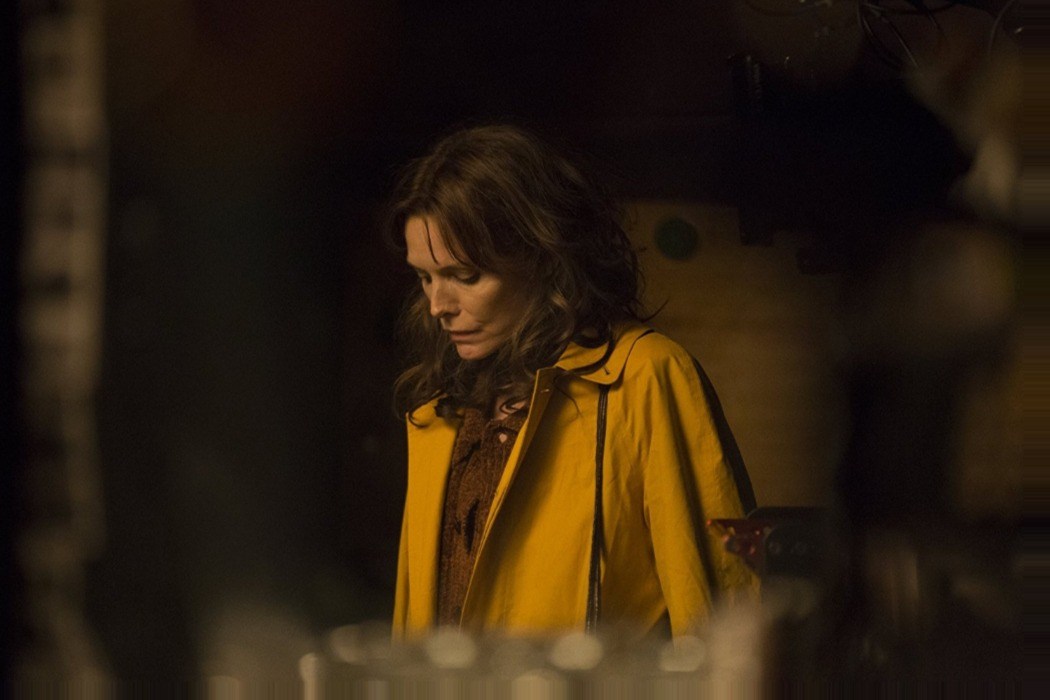
Despite accusations of poverty porn, Where Is Kyra? is the type of film that critics insist don’t get made anymore: a film for adults dealing with involved, unclimactic issues in a way that is measured and not exploitative. Starring Michelle Pfeiffer, Where Is Kyra? addresses topics like economic insecurity, aging anxiety, and the difficulties facing marginalized populations.
It was also imagined as a comeback of sorts for Pfeiffer whose big year in 2017, with showy performances in mother! and Murder on the Orient Express, mostly went unappreciated. Pfeiffer does typically strong work and more or less drives the film. She conveys defiance and vulnerability in the face of an economic system that repeatedly asserts that she has no value. The story is grim, and Pfeiffer doesn’t bother with movie star glamor. She’s not vamping for the camera or winking to the Oscar voters.
Directed by Andrew Dosunmu and written by Darci Picoult, the film takes a cinematic look at an uncinematic topic. Pfeiffer plays the titular character who loses her job and is forced to rely more and more on her elderly mother’s income and benefits. The film follows her as she buckles under the strains of her new economic reality, providing a suitably realistic presentation of how difficult it is to maintain any semblance of integrity in an unforgiving economic system.
7. Sweet Country
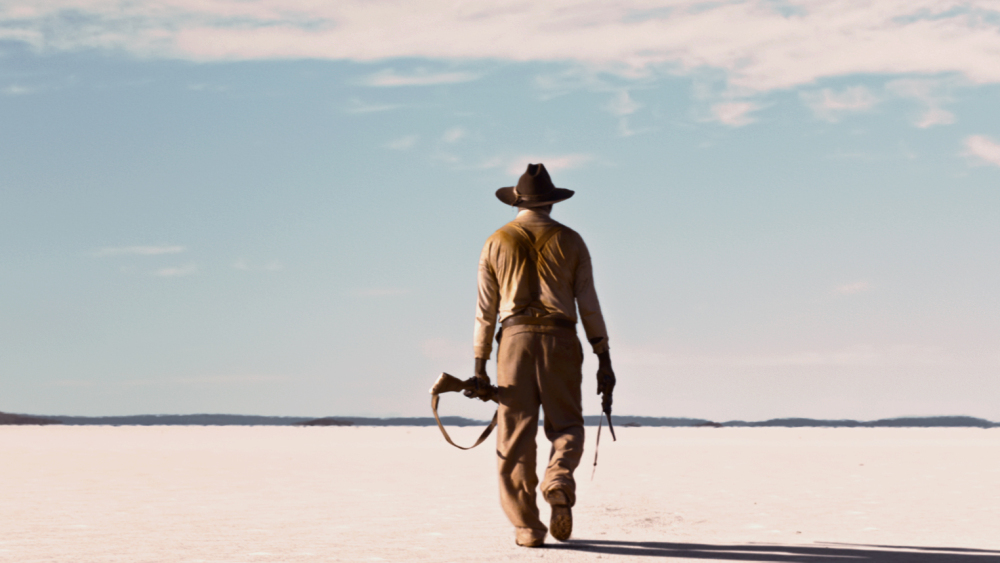
The outback western genre is a delightful result of a globalized cinema scene. It’s just a shame that even the best of them don’t make more of a dent in the west. Sweet Country is firmly rooted in Australia and provides a blistering picture of the continent in the 1920s. But despite its strong sense of time and place, it is a timeless story with relevance for the entire world.
Warwick Thornton’s latest attempt at cinema that focuses on indigenous populations tells the story of an Aboriginal man who tries to escape a murderous posse after shooting a white man in self-defense. It’s a story so oft-tread that mixing up the place and socioeconomic details should do little to make it come alive, but Thornton, working from a script by Steven McGregor and David Tranter, knows that this is a story worth telling.
As Sam, Hamilton Morris effectively plays a man who refuses to surrender agency over his life, even if it means risking everything. Ewen Leslie, Matt Day, and Bryan Brown round out a rogues gallery of violent bigots and flawed lawmen who fail to adequately question their supposed moral superiority, and Natassia Gorey Furber conveys the horror and pain of living as second-class citizen in a society that demands to be called moral and equal.
Like much of Australian cinema, Sweet County records the brutality of its history against the starkly beautiful but merciless landscapes. It’s not a new story, but it’s one that is retold again and again because it remains relevant. Thornton foregrounds the paradox of vigilante justice to make an argument about how progress and “civilized” society often use bigotry and the blood of the poor as their foundations. Also, it’s always nice to see Sam Neill pop up, even in a film as grim as this.
6. Blaze
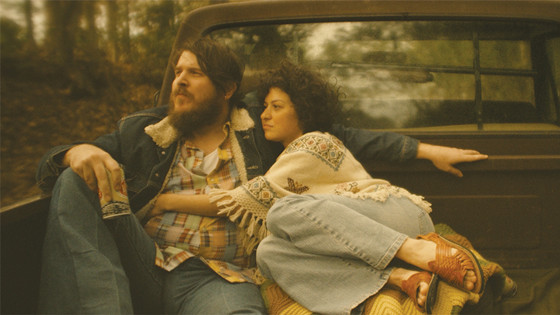
In 2018, audiences were crazy for stories about rock stars. Bohemian Rhapsody overcame bad publicity and tepid reviews to become a hit and an awards contender. A Star is Born delighted audiences and critics. It’s unfortunate that the fanfare and box office that met these two features couldn’t extend to Blaze.
Directed by Ethan Hawke, Blaze tells the story of real-life musician Blaze Foley. As surely as Foley was an under-the-radar musician, especially for those not from Austin, Texas, Blaze is an under-the-radar film, the kind that impressed on the festival circuit and got good reviews but didn’t make it to national prominence.
Hawke wrote the film with Foley’s former lover Sybil Rosen, who is played in the film by Alia Shawkat of Arrested Development fame. Ben Dickey earned raves for his portrayal of Foley, and Hawke stuffs his film with famous Texas luminaries like Kris Kristofferson and Richard Linklater.
The story is familiar, but the way it’s told is intimate, honest, and stripped-down. Films about musicians tend to glamorize excess by showing it as the logical end point for rapturous genius, but Blaze is the rare film that dares to mourn for wasted potential and sees those excesses not as means to an end but the cause of premature endings.
The film helped rekindle interest in Foley’s music and introduce his legacy to a new generation of fans, but it also revealed new depths for its director. Hawke may have gotten the best reviews of his career this year for First Reformed, but he hasn’t always succeeded in his other careers as director and novelist. With Blaze, Hawke and his crew gave audiences a story worth listening to.